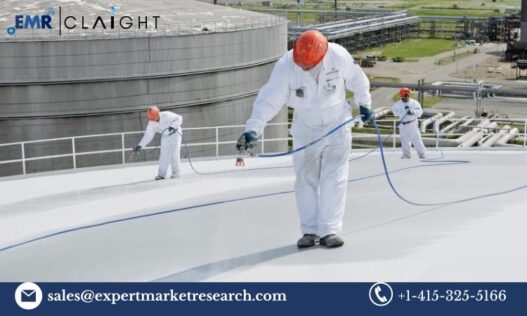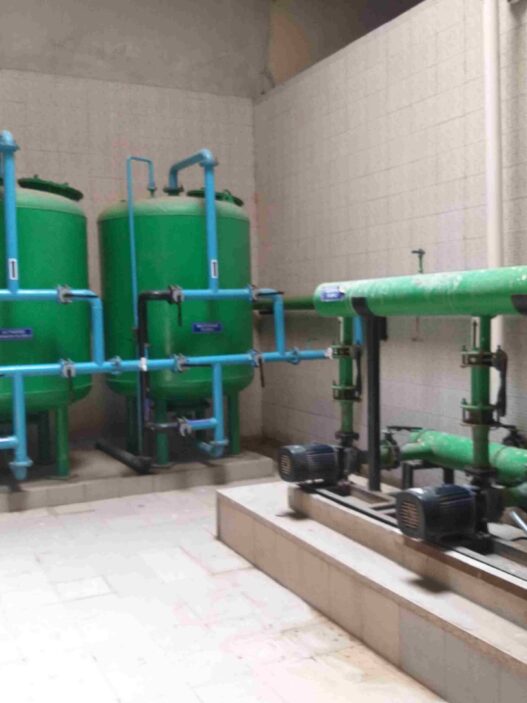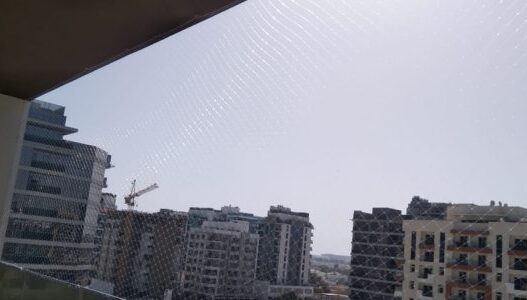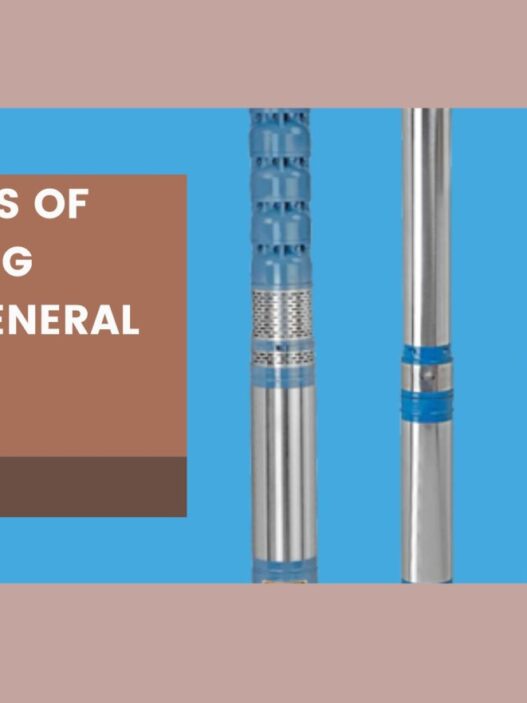The global thermal insulation coating market size attained a value of more than USD 9.76 billion in 2023. The market is further expected to grow in the forecast period of 2025-2033 at a CAGR of 6.67% to reach over USD 17.46 billion by 2033. This rapid expansion is primarily driven by the growing emphasis on energy efficiency, sustainability, and technological advancements across various industries. As global awareness of environmental issues and energy conservation continues to rise, thermal insulation coatings have become a critical component in numerous sectors, from construction to automotive to aerospace. In this blog post, we’ll explore the market dynamics, key trends, applications, and the factors fueling this impressive growth.
Market Overview
Thermal insulation coatings are a type of protective coating that helps in minimizing heat transfer, offering both energy-saving benefits and improved performance in various industrial applications. As energy costs continue to rise and the demand for sustainable building practices increases, these coatings are gaining popularity worldwide. They are used to improve energy efficiency, reduce heating and cooling costs, and enhance the performance of buildings, industrial equipment, vehicles, and more.
The growing push for energy-efficient buildings, increased focus on environmental sustainability, and rising industrial activities globally are propelling the demand for thermal insulation coatings. Key industries like construction, automotive, aerospace, and manufacturing are investing heavily in these coatings to reduce their environmental footprint and increase operational efficiency.
Market Segmentation
The global thermal insulation coating market is segmented based on product type, application, and geography. Below is a closer look at these key segments:
By Product Type
- Acrylic Thermal Insulation Coatings: Acrylic coatings are widely used due to their excellent weather resistance, easy application, and cost-effectiveness. They are primarily used in the building and construction sector for insulating roofs, walls, and ceilings. These coatings are durable and provide high performance in terms of thermal resistance, which makes them suitable for both residential and commercial applications.
- Epoxy Thermal Insulation Coatings: Epoxy-based thermal insulation coatings offer high chemical resistance and superior durability. These coatings are typically used in industrial applications and for machinery insulation. They provide a solid and protective barrier against heat, corrosion, and extreme temperatures, making them ideal for applications in the automotive, aerospace, and manufacturing sectors.
- Polyurethane Thermal Insulation Coatings: Polyurethane coatings are known for their excellent thermal resistance and insulating properties. They are widely used in automotive, construction, and industrial applications. Polyurethane coatings can significantly enhance the energy efficiency of buildings by reducing heat loss or gain, thus lowering overall energy costs.
- Yttria Stabilised Zirconia (YSZ): YSZ coatings are typically used in high-performance applications such as aerospace and defense. These coatings can withstand extremely high temperatures, making them ideal for environments where high thermal stability is required. YSZ coatings are used to enhance the performance of turbine blades, aircraft engines, and other critical components.
- Mullite Thermal Insulation Coatings: Mullite is a high-performance insulating material that is primarily used in extreme temperature environments. These coatings are employed in industries such as manufacturing and aerospace, where high thermal resistance is essential for machinery and equipment exposed to intense heat.
By Application
- Building and Construction: The building and construction sector is the largest consumer of thermal insulation coatings. These coatings are used to improve energy efficiency, enhance the thermal performance of buildings, and reduce cooling and heating costs. In residential and commercial buildings, they are applied to walls, roofs, and floors, playing a crucial role in maintaining comfortable indoor temperatures and reducing the overall energy consumption.
- Automotive and Transportation: Thermal insulation coatings are increasingly used in the automotive sector to reduce heat loss and increase fuel efficiency. These coatings are applied to various components, such as engines, exhaust systems, and the undercarriage of vehicles, to enhance performance, protect against corrosion, and improve thermal management.
- Aerospace and Defense: Aerospace and defense applications require coatings that can perform under extreme temperature conditions. Thermal insulation coatings, such as YSZ, are used in turbine blades, engine components, and aircraft surfaces to ensure optimal performance in high-temperature environments. These coatings also provide protection against heat-related damages.
- Manufacturing: In the manufacturing sector, thermal insulation coatings are used to protect industrial machinery, ovens, reactors, and pipes. They help reduce energy consumption, enhance machinery efficiency, and increase the lifespan of equipment by preventing heat loss and maintaining consistent temperatures in processing plants.
- Others: Thermal insulation coatings are also employed in various other sectors, including oil and gas, power generation, and marine industries. They are used to insulate pipelines, tanks, and vessels, ensuring efficient energy use and minimizing heat loss in these sectors.
Regional Analysis
- North America: North America, particularly the United States and Canada, is a leading market for thermal insulation coatings. The growing focus on sustainability, energy efficiency regulations, and the implementation of green building standards are key factors contributing to the market’s growth. Additionally, the automotive and aerospace sectors in this region heavily rely on thermal insulation coatings for manufacturing high-performance components.
- Europe: Europe is another major market, where energy efficiency in buildings is a high priority. European nations like Germany, France, and the UK are increasingly adopting sustainable building practices, leading to higher demand for thermal insulation coatings. Stringent environmental regulations and government incentives further support the growth of the market.
- Asia Pacific: The Asia Pacific region is expected to experience the fastest growth due to rapid industrialization, urbanization, and a booming construction sector, particularly in countries like China, India, and Japan. The region’s growing demand for energy-efficient buildings and infrastructure, coupled with the rise of industrial activities, presents significant opportunities for thermal insulation coating manufacturers.
- Latin America and Middle East: In Latin America and the Middle East, demand for thermal insulation coatings is rising due to growing infrastructure development and the need for energy-efficient solutions. The Middle East’s emphasis on sustainable building practices and the construction of high-performance commercial properties are key drivers for market growth in this region.
Market Dynamics
Key Drivers
- Energy Efficiency Regulations: Governments worldwide are tightening regulations related to energy efficiency in buildings and industrial applications. The global push for sustainability and reduced energy consumption has made thermal insulation coatings a vital solution to meet energy-saving targets and reduce carbon footprints.
- Growing Demand for Eco-Friendly Solutions: The increasing emphasis on eco-friendly and sustainable solutions is encouraging industries to adopt thermal insulation coatings made from non-toxic, recyclable materials. These coatings help reduce overall energy consumption, making them an attractive option for energy-conscious consumers and businesses.
- Industrial Growth and Urbanization: As the construction, automotive, aerospace, and manufacturing sectors continue to grow, the demand for thermal insulation coatings is expanding. With urbanization driving new construction projects, especially in emerging markets, the need for energy-efficient building solutions is more critical than ever.
- Technological Advancements: Ongoing innovation in coating technologies, such as the development of smart coatings with self-healing and temperature-responsive properties, is providing new opportunities for market expansion. These advancements are helping to improve the performance and durability of thermal insulation coatings.
Restraints
- High Raw Material Costs: The cost of raw materials used in thermal insulation coatings, such as yttria-stabilized zirconia and polyurethane, can be a significant barrier to market growth. Fluctuating raw material prices may impact the overall pricing of coatings, making them less affordable for some consumers.
- Environmental Concerns: Despite the increasing demand for energy-efficient solutions, some thermal insulation coatings, particularly those made from synthetic chemicals, may have environmental concerns. Manufacturers must work to create coatings that meet energy efficiency standards while minimizing environmental impact.
Opportunities
- Emerging Markets: The growing middle class and increasing demand for residential and commercial buildings in emerging markets like China, India, and Brazil offer significant growth opportunities. As these economies continue to develop, demand for energy-efficient solutions will rise, fueling the growth of the thermal insulation coatings market.
- Integration of Smart Coatings: The integration of smart coating technologies, including those that change color based on temperature or offer self-healing properties, presents exciting opportunities in various industrial applications. These innovations could provide added value, opening new avenues for growth in markets like aerospace and automotive.
Competitive Landscape
The global thermal insulation coating market is competitive, with both large and small players vying for market share. Key players in the market include:
- AkzoNobel
- Sherwin-Williams
- BASF
- Hempel
- PPG Industries
These companies are focusing on product innovation, expanding their product portfolios, and forming strategic alliances to maintain their competitive edge. With the growing emphasis on sustainability and energy efficiency, manufacturers are increasingly investing in eco-friendly and high-performance coatings to meet the needs of diverse industries.











